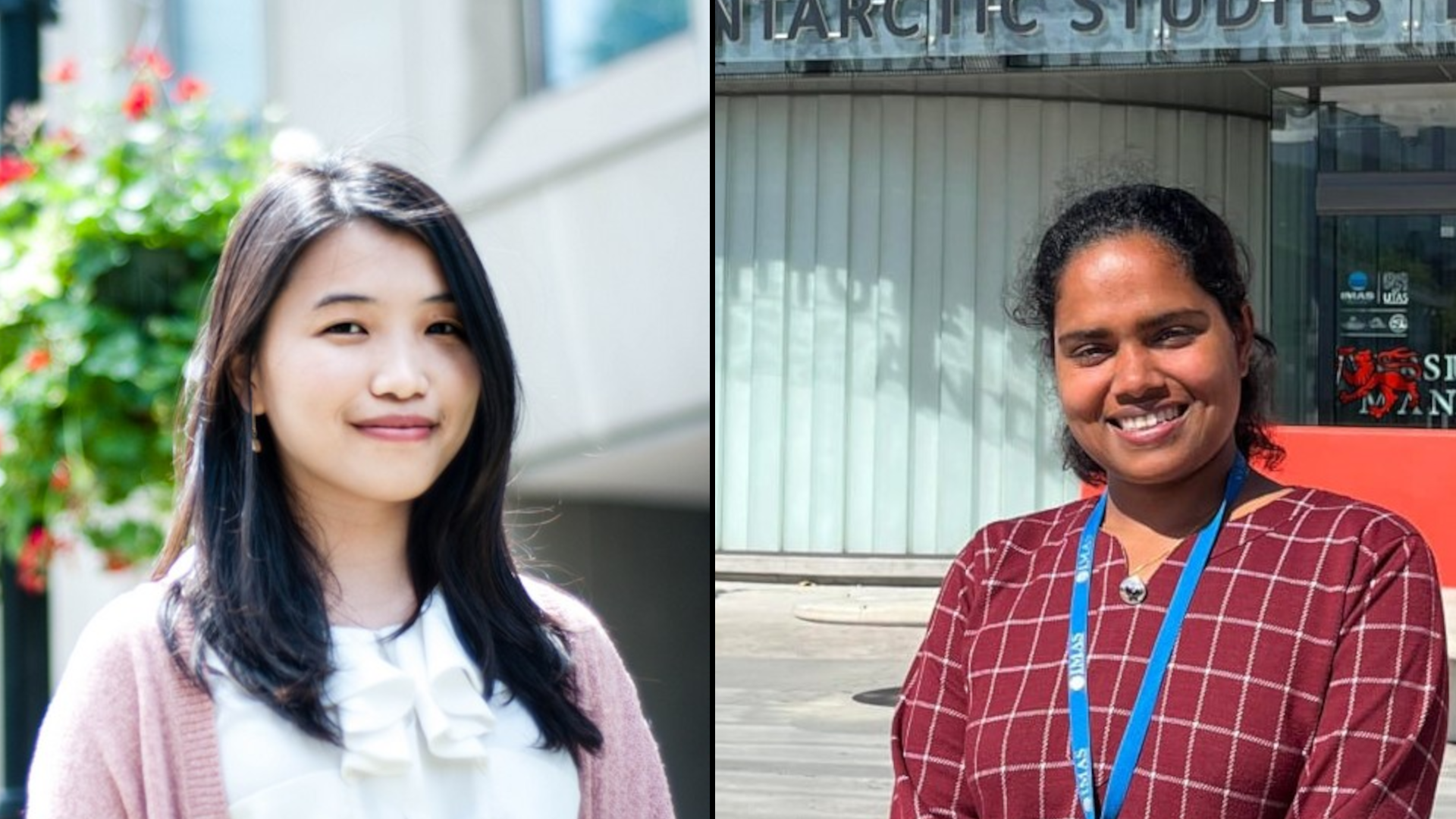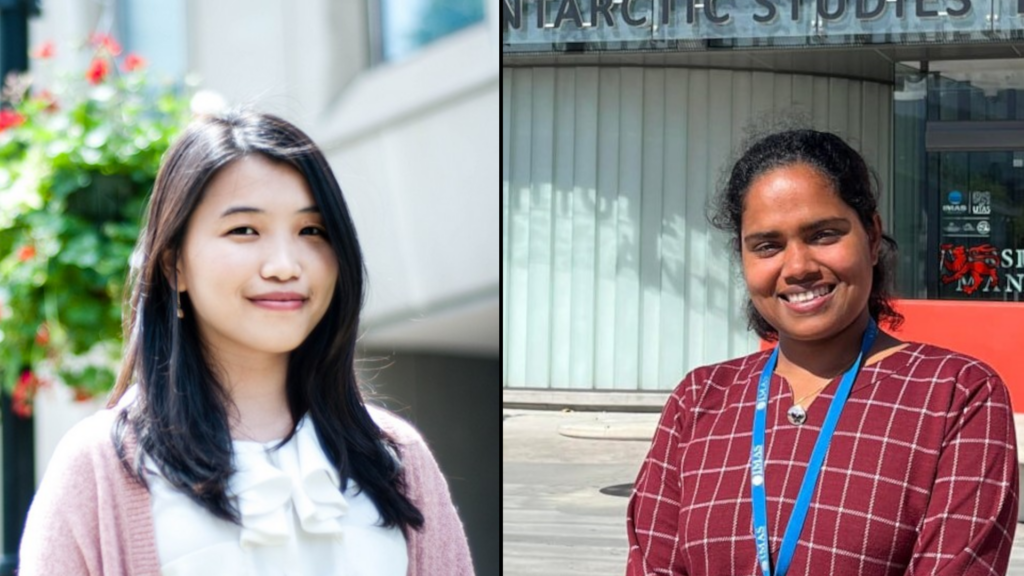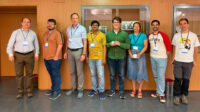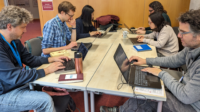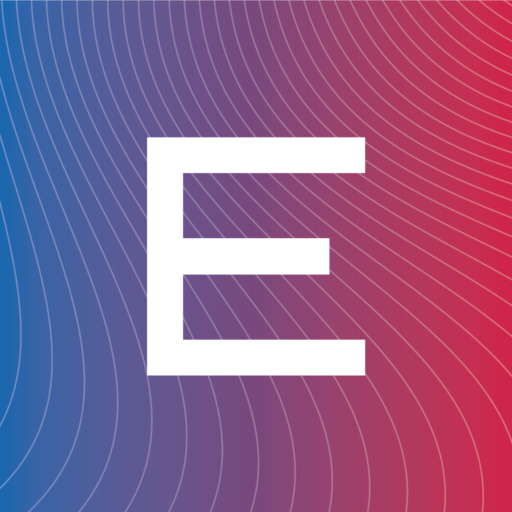As we mark the International Day of Women and Girls in Science on 11th February, two EERIE Project scientists have shared their experiences and their thoughts on what’s needed to achieve equality in their field - and there’s a long way to go!
Meet Dr Ting-Chen Chen from Taiwan, 34, who studied her PhD in Canada, and Dr Stephy Libera, 28, from India, who pursued her PhD in Australia, both currently researching air-sea ice-ocean interactions at the Université Catholique de Louvain.
Why and how did you get interested in your research field?
Ting-Chen: I got into atmospheric science by chance. In Taiwan, the college admission process generally starts with students taking the university entrance exam. My score was not high enough to be admitted to the “superior majors” (usually the ones that lead to more high-paying job opportunities), and among the possible options, I saw earth/atmospheric sciences. Not until then did I recall the very few hours of earth science courses in high school, and I thought I actually liked it back then, so why not give it a try?. That somewhat random decision turned out to be one of the most important decisions that changed my life completely. After I went to the Department of Atmospheric Sciences at the National Central University, I felt more and more intrigued by the science behind the weather and climate. I was particularly amazed by how we can predict the weather by applying fluid dynamics, thermodynamics and numerical computations. When I had the chance to choose a research topic for my master’s program, I decided to study one of the most impactful weather systems in Taiwan, tropical cyclones.
Stephy: I was doing my bachelor’s in physics, I was not interested in doing an MSc in physics which at the time seemed like learning more theory, and concepts that didn’t seem to have real-world relevance to me. When I heard about oceanography, I was curious and I felt that learning more about the world we live in, understanding its physics and what processes drive it, had implications to the society that I was part of.
Was there anyone who inspired you to pursue that career?
Ting-Chen: It kind of happened naturally. If I must name some names, I would say my mom’s support and understanding that climate science is a crucial issue globally was quite important to me in making the decision. And many great, rigorous and humble scientists I met along the way all played roles in keeping me interested in this field of study.
Stephy: I heard about oceanography in the final year of my bachelor’s degree. It was not a well-known field where I lived, so I had not known anyone in the field. One of my professors who had noticed a pattern in the seminars I gave in college on rare clouds, rare natural phenomena, and similar topics, knew I had an interest in Earth sciences in general and supported me.

Dr Stephy Libera onboard the SA Agulhas during the Indian Southern Ocean Expedition 2017-18.
Do you know women belonging to previous generations working in your field? What did they tell you about their experiences and challenges they had to overcome?
Ting-Chen: Yes, there were some (and getting more in the past few years) female professors in my universities. I cannot recall any gender-specific challenges that they had to overcome, but I do remember vividly that the first few questions they asked me after hearing that I considered studying abroad were “How about your boyfriend”, “Do you plan to have kids”, etc. I’m not saying that they were reinforcing traditional gender expectations on me; Instead, I think those questions and the follow-up advice, such as “If you want to have kids, do it when you’re still in PhD. It’s gonna get harder later” reflected the problems that women tend to struggle more, the timing of pursuing a career and building a family.
One relevant observation that I had during these years living abroad in North America and Europe is that there are many females who gave up their jobs in their countries to follow their husbands to move/study/work abroad, but there were seldom the opposite case.
Stephy: In India, before I joined my master’s program in Physical Oceanography, I didn’t know of female (or male) researchers in the field. However, considering the amount of resistance that I faced from my circles for my decision to take oceanography, I can certainly say, it would not have been easy for many females in the previous generation to enter the field. I was told it is a job for a man, that it is risky to go to the sea and that being a female I wouldn’t be able to succeed in the field. These comments were made by professors in other fields, family, and friends, who like me, also were not aware of what the field of physical oceanography entailed. Yet, because I was a female and the field was something they perceived to be risky, I was very much discouraged from joining. I was stubborn (I am grateful for that), I joined my Master of Science (MSc) degree in physical oceanography at the Cochin University of Science and Technology (CUSAT) and enjoyed learning the subject. In 2018, as a part of my MSc project, I was able to go for field work in the Southern Ocean, which was one of the best experiences in my life, and it anchored me to continue my studies and research in polar oceanography.
During my PhD in Australia, I had a female supervisor in my team. I have seen her set a role model in many instances and I was very grateful to have her guide me in my research journey. We had formal and informal conversations where she shared perspectives on research, work-life balance, career, and the likes, that was vital to keep me on track. I also sought out mentoring from other senior female researchers in the field. These researchers have overcome many hurdles and still face many challenges. I have seen some of them raise moral issues in meetings when some of the senior (male) researchers make negative or discriminative comments or behaviors, when important group meetings become overridden by senior male researchers debating over their points or perspectives, often not giving everyone at the table an equal voice. I have seen these female researchers have tough conversations to be just on the same level field, the extra efforts they need to put to be somewhere they should be. Yet in many instances the female researchers that stand up for themselves and the benefit of others are often considered troublemakers.
What difficulties have you faced throughout your academic and professional career your male colleagues didn’t have to worry about? Have you ever felt discriminated against during your academic and/or professional career?
Ting-Chen: I guess one common worry many of my female colleagues share is that it is more difficult for women to advance through academic ranks if they decide to have children, as maternity leave would create a career gap that is difficult to recover from. This issue particularly concerns early-career scientists who are on limited-term employment contracts. If we need to constantly provide proof of our professional performances (publications) to secure the next contract every one to three years, potentially in a different country, how can we have babies now? I believe this challenges women’s academic careers more than men’s.
While direct sexual discrimination was not common in my experience, I do get sexist comments from time to time. An example happened when I was in an international summer school. All participants were separated into groups randomly to work as a team. When my group members and I were discussing each other’s duties for the team project, one said to me, “You should present the work on the stage since you are the only female in this group.” The other recent incident happened in an invited seminar at a university. After I finished my presentation, one professor in the audience said to me that he was somewhat disappointed, because he expected something different (in terms of research content) and he sighed “Oh well, this is not the first time I got fooled by pretty girls.”
Stephy: So far, I have been fortunate that I have not faced any major discrimination as a female (or that I am aware of). However, there are many instances that my female academic peers and I have encountered happening to people we know or people around us. Some are subtle, some not so much. An example is "being the only woman in a lab". Even if there is no direct discrimination, in many situations there is a sense of "camaraderie" between the men that makes women feel isolated. This applies both personally and scientifically, sometimes great science ideas are discussed over lunch/coffee/beers and if the women are not invited, they will not participate.
Another common issue is females being judged for appearance rather than for science (e.g., comments like "what a pretty girl", and not "what a nice presentation", “oh it’s not just beauty, you’ve got some brains”, etc). Female researchers after becoming mothers are not being asked to join projects because "they seem already too busy".
And unfortunately, we still have a lesser number of females at the senior or permanent positions.
I have also experienced some minor predatory behavior during my field experience, one of the senior researchers that joined the research voyage from a non-oceanographic field was sexist and disrespectful. While the experience of being groped is unfortunately too common in India (in public transport or busy streets), it happening from a senior researcher in your expedition was gross. My experience is way too minor compared to the experiences I have heard from other female researchers in the field. Efforts are still going on to improve the safety and working conditions of women in field work, especially in the polar regions.
Dr. Ting-Chen Chen presented her work on "Climatology of wind and precipitation extremes induced by extratropical cyclones over northeastern North America" at the National Central University, Taiwan, on 17 Jan 2023. The screen showed the famous "Halloween Storm" hitting eastern North America with damaging winds and heavy precipitation, causing insured losses of over CA$250 million in 2019.
How do you think the access to these degrees and careers could be made more accessible to women?
Ting-Chen: Despite what I said above, I still think academia has come a long way toward gender equality. It is true that the field is still dominated by men, especially in higher-level positions, but I have seen more and more female students, great scientists and young professors in recent years. This is an indication that we are on the right track! And there are also some scholarships, funding, or even job opportunities that give priority to women. So, women are not necessarily in an inferior position in terms of degree accessibility in many places nowadays. For countries, regions, or institutions that still have high gender imbalances, taking viable actions to increase the ratio of females is crucial to break the cycle. It is natural that females would feel less encouraged and tend to be held back from pursuing degrees or careers in a male-dominated place.
Stephy: Through awareness, encouragement and support.
Awareness at the grassroot level ― Although it is changing in India, in many communities spending resources on a female for higher education is considered a loss for she is to be married away. If she was to have a job (depending on the decision of her husband and family), the benefits from her job goes to the in-law family and her parents usually don’t get much support. So many families prioritize the education and job prospects of the male child (expected to take care of the aging parents) for the long-term benefit of the family and their financial stability reinforcing the male “breadwinner” and the female “homemaker” roles. Building awareness in these communities, often by challenging its traditional views and presenting educated females in societally relevant roles may promote more young girls to gain higher education.
Encouragement ― Young students (especially females) from underprivileged backgrounds lack knowledge about higher education opportunities like scholarships and career pathways. Importantly, in many occasions they lack confidence to pursue these pathways. It is essential to encourage and inspire these students to pursue higher education. During school and college I believed a career in Science, Technology, Engineering, Mathematics and Medicine (STEMM), doing scientific research, was something out of reach. I had not seen anyone that I knew of who was a researcher and had never heard about oceanography. This memory inspired me to visit schools and colleges in India and share my experiences about research and career in STEMM often targeting females. I also used to think that I was an average student and research was exclusively for high achieving (in terms of grade) students, and I tell the students that I was only someone that barely managed to pass Physics and Math in high school, and that they can do it too. I believe it is important for more students to see someone relatable in STEMM.
Support ― Although a high proportion of female students and researchers enter at the graduate, postgraduate, PhD, and even postdoc levels, very few female researchers are found in the higher ranks (such as project investigator, chief investigator, professor, and other long-term positions). To improve the representation of female researchers at these higher levels, we need to identify the hurdles that female early career researchers face in taking up leadership roles and equip them with resources and support to progress in their career.
What would you say is still needed in order to achieve gender equality there too - in the higher levels?
Ting-Chen: I think the main challenge for female academics comes at the later stage of their career, to climb up and secure a stable job in a competitive environment while building a family. There’s no easy way to ease this, and it is to some degree connected to a bigger-scale problem in the academic system; for example, there are too few permanent job positions and postdocs are forced to change from one place to another. In practice, improving childbirth support may attract more women to continue the career path<. We should also continuously discuss the sustainability of academia and how to spare the burden of postdocs who need to constantly seek the next job opportunities.
Stephy: I believe improving the retention of women in science, to have more women in leadership roles is one of the goals to achieve, while sustaining efforts at grassroots level to continue inspiring females to science. It’s no use to fill the pipe at the one end without plugging the holes.
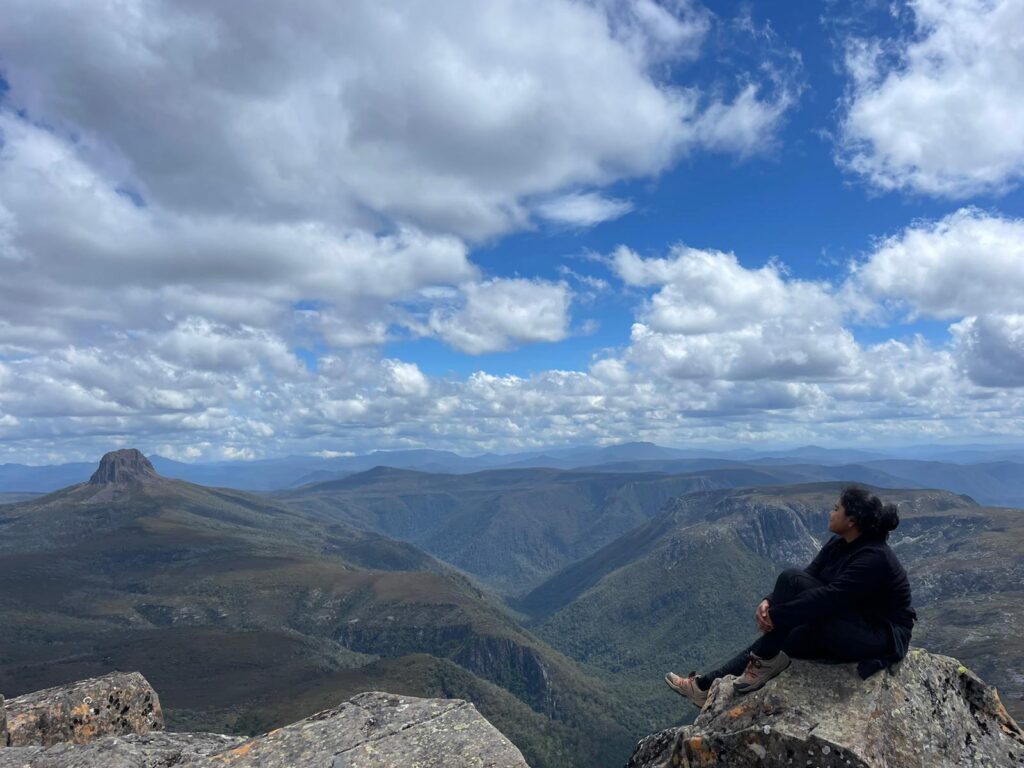
Dr Stephy Libera during a hike to the summit of Cradle Mountain, in Tasmania, Australia.
What professional goals do you expect to achieve?
Ting-Chen: I enjoy conducting weather/climate-related studies and I take pride in pursuing rigorous research, but right now I don’t have any “ambitious” professional goals set for the future. I’d like to stay open-minded in terms of career, either academia or industry. My practical expectation for the long term is to secure a stable job that allows me to continue doing research or working in weather/climate-relevant fields that I personally feel motivated by.
Stephy: I remember when I completed my MSc degree, I was telling myself that in 10 years, I would like to gain some field and research experience and then get into teaching. Now it is not that clear, yet I consider teaching or science communication to be something I would like to do more in the future. I believe there is value in communicating science to a non-scientific audience. I have always put in effort when it came to communicating concepts (like using an analogy that could help them grasp a concept or use visuals or very simplified models). I enjoyed it when members of the audience engaged in discussions or told me they understood the concept and I always found it rewarding. So, somewhere along the line, I may get into teaching or do science outreach. I joined oceanography also with the dream of doing field work. I am very happy to have had an opportunity, but I will try to get more field work in the future.
